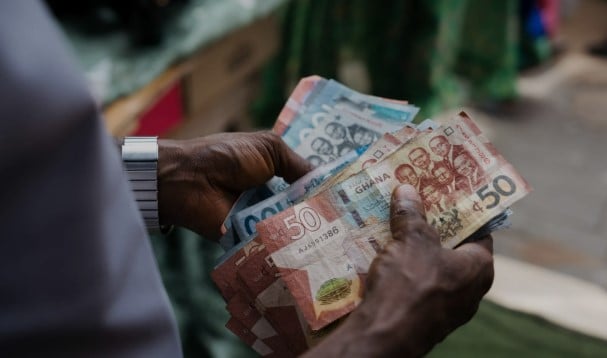The Ghanaian cedi, once celebrated as the world’s best-performing currency, experienced a dramatic reversal of fortune, plummeting to become the worst performer in the third quarter of 2025. This stark shift underscores the volatile nature of currency markets and the vulnerability of import-dependent economies like Ghana’s. Just five months prior, in April 2025, the cedi enjoyed a remarkable 16% surge against the US dollar, fueled by robust gold prices and contributing to a decrease in inflation to an eight-month low of 21.2%. However, this success proved short-lived as increased import demands, particularly in anticipation of the Christmas season, triggered a surge in demand for dollars, placing immense pressure on the cedi.
The cedi’s decline, a steep 13% drop in the third quarter, effectively erased a significant portion of the impressive 50% gain it had achieved between April and June. This dramatic depreciation reflects the underlying challenges faced by Ghana’s economy, which relies heavily on imports ranging from essential food items to machinery. As businesses ramp up their import activities towards the end of the year, the demand for dollars intensifies, creating an imbalance in the foreign exchange market and putting downward pressure on the local currency. This surge in demand coincided with the Bank of Ghana’s limited supply of foreign exchange, exacerbating the cedi’s woes.
The Bank of Ghana’s restricted release of foreign exchange, despite holding gross international reserves at a three-year high of $11.1 billion at the end of June, further amplified the currency’s decline. Reports indicate that commercial banks received only half of their requested dollar allocations from the central bank, highlighting the scarcity of foreign currency in the market. While the central bank aimed to meet all demand in the following week, this shortfall underscored the strain on the country’s foreign exchange reserves and the challenges in managing the cedi’s volatility. The central bank maintained that its role was to ensure orderly fluctuations reflective of underlying economic fundamentals and to maintain overall economic confidence.
This currency crisis placed the Ghanaian cedi at the bottom of the global currency performance list during the third quarter, surpassing the losses experienced by several other currencies. The Ethiopian birr, Chilean peso, Dominican Republic peso, Botswana pula, and Argentine peso all recorded depreciations against the dollar, but none as severe as the cedi’s 13.4% decline. This underperformance underscores the severity of the pressure on the Ghanaian currency and the challenges faced by policymakers in mitigating the impact of external factors, such as increased import demand and limited access to foreign exchange.
Despite this significant setback, the cedi maintained a year-to-date gain of 23%, showcasing a degree of resilience. This positive performance in the earlier part of the year suggests the potential for recovery, although the challenges in the foreign exchange market remain a significant concern. The ability of the cedi to regain lost ground will depend on factors such as the Bank of Ghana’s management of foreign exchange reserves, the stabilization of import demand, and the overall performance of the Ghanaian economy. The volatile nature of currency markets, however, means that future fluctuations are always a possibility.
The cedi’s dramatic reversal from best to worst performer highlights the interconnectedness of global markets and the vulnerability of economies reliant on imports. The increased demand for dollars coupled with limited supply created a perfect storm that sent the cedi tumbling. This situation underscores the importance of robust foreign exchange management strategies and the need for diversified economies to mitigate the risks associated with currency fluctuations. The cedi’s future performance remains uncertain, but its recent volatility serves as a stark reminder of the challenges faced by import-dependent economies in a globalized world.


